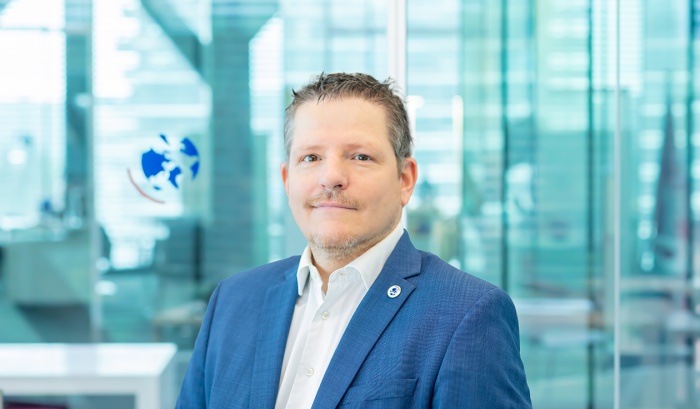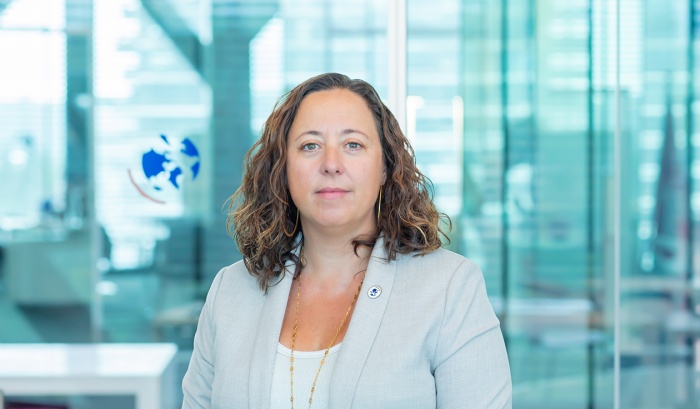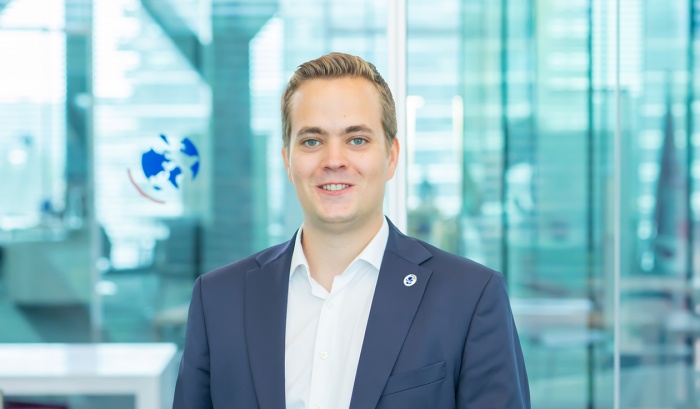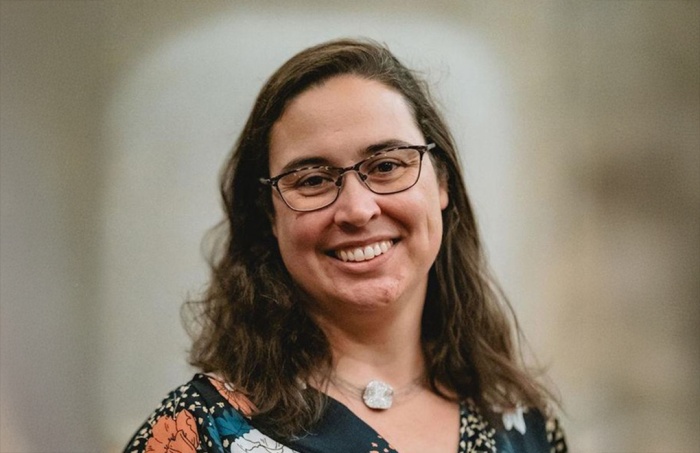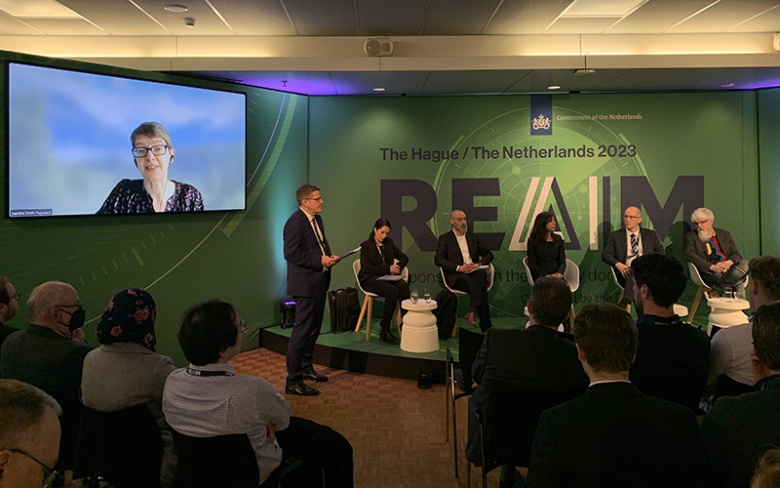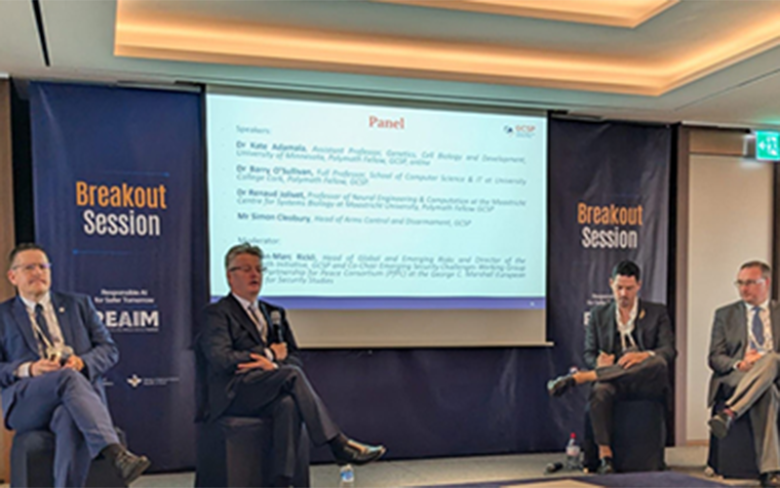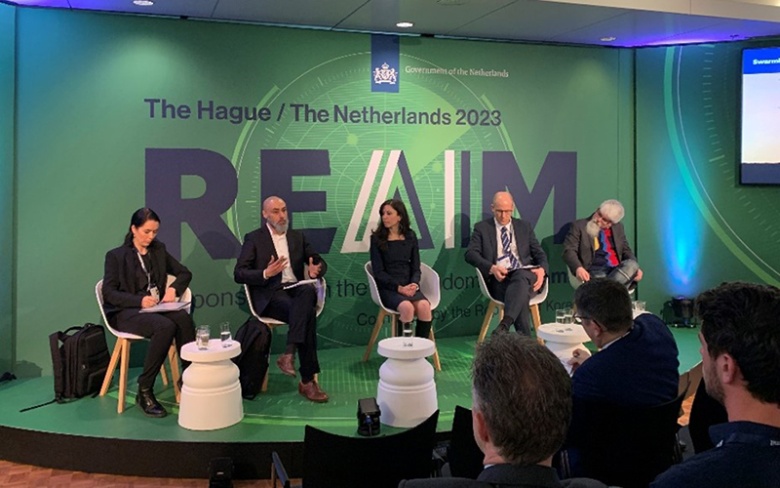The Polymath Initiative
What is the Polymath Initiative?
The Polymath Initiative was launched by the GCSP in May 2021 to address the “silo thinking” that can lead to policy and governance failures in anticipating the societal consequences of emerging technologies. This initiative seeks to bridge gaps in understanding and communication between the scientific community and policymakers. By promoting a “polymath thinking” approach, the GCSP aims to foster a community of scholars that are conscious of the ethical, security and governance implications of technological innovation. To this effect, four professionals, each specialising in an emerging technology (artificial intelligence, cybersecurity, neurotechnology, and synthetic biology) are offered a 2-year fellowship at the GCSP, thanks to the support of the Didier & Martine Primat Foundation and the EA Funds Long-Term Future Fund. Fellows are expected to become influential voices within their respective scientific fields, equipped to advocate for “polymath thinking” in emerging technologies and to bridge the gaps between science, technology, policy, and society.
Why has the GCSP launched this Initiative?
The Global and Emerging Risks cluster is deeply involved in understanding and raising awareness of the security and societal implications of emerging technologies for international peace and security. Areas such as artificial intelligence, synthetic biology, neurotechnology, and cybersecurity are increasingly having significant economic, ethical, social, political and security impacts. However, thinking about their broader implications often remains siloed: Too often do we see technological developments that are not concerned with policy, and policies that fail to keep pace with technological progress. This growing disconnect highlights the need for “translators”, individuals capable of engaging both the scientific and policy communities, to bridge this gap. Fostering “polymath thinking” is the key strategy adopted by the programme to overcome silo thinking and address the ethical, security and governance challenges stemming from emerging technologies.
The Fellowship Programme
The fellowship programme lasts two years and is conducted under the auspices of the Global and Emerging Risks cluster and the Global Fellowship Initiative (GFI). During the first year, Polymath fellows participate in and contribute to GCSP workshops, events, and courses, gaining deeper insight into global governance, ethics, and international peace and security issues linked to technological development. In the second year, fellows have the opportunity to contribute to GCSP publications on these topics, further developing their ability to act as “translators” between science, policy, and society. Throughout the programme, fellows also have access to GCSP’s extensive network of experts and alumni. Successful candidates should have strong technical expertise in synthetic biology, cybersecurity, artificial intelligence, or neurotechnology, along with a desire to deepen their understanding of the governance, ethical, and security implications of emerging technologies, and a willingness to share their insights with non-specialist audiences.
Experts
2023-2025 Fellows
- Dr Barry O’Sullivan – Artificial Intelligence Fellow – Full Professor, School of Computer Science & IT, University College Cork.
- Dr Kate Adamala – Synthetic Biology Fellow – McKnight Presidential Fellow Associate Professor, University of Minnesota.
- Dr Renaud Jolivet – Neurotechnology Fellow – Professor of Neural Engineering & Computation at the Maastricht Centre for Systems Biology, Maastricht University.
2021-2023 Fellows
- Dr Kevin Esvelt – Synthetic Biology Fellow – Assistant Professor of Media Arts and Sciences, Massachusetts Institute of Technology Media Lab.
- Dr Sandra Scott Hayward – Artificial Intelligence Fellow – Senior Lecturer, School of Electronics, Electrical Engineering and Computer Science, Queen’s University Belfast.
- Dr Ricardo Chavarriaga – Neurotechnology fellow – Head of the Swiss office of the Confederation of Laboratories for AI Research in Europe, Senior Researcher at Zürich University of Applied Sciences.
Partners
Since its launch in 2021, the Polymath Initiative has benefited from the generous support by the Didier and Martine Primat Foundation. For the 2025-2027 cohort, the Didier and Martine Primat Foundation is once again supporting two Polymath fellowships, with two additional positions funded by the EA Funds Long-term Future Fund.


Publications
- Rickli, Jean-Marc and Knappe, Tobias. “Enhancing Cognitive Security and Societal Resilience to Counter Cognitive Warfare”. Geneva Centre for Security Policy; In Focus. 07 October 2025.
- Chitayat, Liyam and Adamala, Kate. “The Promise and Peril of a Startling New Technology”. Foreign Affairs, 28 August 2025.
- Jolivet, Renaud B. “The Future Interface of Neurotechnologies, Security and Drone Warfare”. Geneva Centre for Security Policy; Strategic Security Analysis: Issue 42. August 2025.
- Smith, James A., Wagstaff, James, Glass, John, de Carvalho Bittencourt, Daniela M., Mitra, Aishwarya, Chitayat, Liyam and Adamala, Kate. “Safeguarding the Benefits of Synthetic Cell Engineering”. Rice University, February 2025.
- Rickli, Jean-Marc. “Dealing with the New WMDs – Weapons of Mass Disinformation”. Geneva Policy Outlook, 20 January 2025.
- Rickli, Jean-Marc and Vllasi, Gëzim. “The Weaponization of Emerging Technologies and Their Impact on Global Risk: A Perspective from the PfPC Emerging Security Challenges Working Group”. Connections: The Quarterly Journal, Volume 24, No. 1, January 2025.
- Adamala, Kate et al. “Confronting Risks of Mirror Life”. Science, 12 December 2024.
- Adamala, Kate et al. “Technical Report on Mirror Bacteria: Feasibility and Risks”. Stanford Digital Repository, 12 December 2024.
- Jolivet, Renaud B. “Lessons from a First Decade in European Science Policy”. European Review, 02 December 2024.
- Rickli, Jean-Marc. “How to Think About War in the 21st Century”. Le Temps, 07 August 2024.
- Rickli, Jean-Marc, Mantellassi, Federico. “The War in Ukraine: Reality Check for Emerging Technologies and the Future of Warfare.” Geneva Centre for Security Policy; Geneva Paper: Issue 34. April 2024.
- Scott-Hayward, Sandra. “Critical International Infrastructure: A Case for Secure, Sustainable Non-Terrestrial Networking.” Geneva Centre for Security Policy; Strategic Security Analysis: Issue 35. January 2024.
- Esvelt, Kevin M. et al. “Securing Civilization against Catastrophic Pandemics.” Geneva Centre for Security Policy; Geneva Paper. Issue 31. 25 October 2023.
- Rickli, Jean-Marc, Mantellassi, Federico and Glasser, Gwyn. "Peace of Mind: Cognitive Warfare and the Governance of Subversion in the 21st Century" Geneva Centre for Security Policy, Policy Brief No. 9. August 2023.
- Chavarriaga, Ricardo, Rickli, Jean-Marc and Mantellassi, Federico “Neurotechnologies: The New Frontier for International Governance” Geneva Centre for Security Policy’s Strategic Security Analysis, no. 29, April 2023.
- Mantellassi, Federico. “Digital Authoritarianism: How Digital Technologies Can Empower Authoritarianism and Weaken Democracy.” Geneva Centre for Security Policy, In Focus. 16 February, 2023.
- Esvelt, Kevin M. “Delay, Detect, Defend: Preparing for a Future in which Thousands Can Release New Pandemics.” Geneva Centre for Security Policy; Geneva Paper: Issue 29. November 2022. https://www.gcsp.ch/publications/delay-detect-defend-preparing-future-which-thousands-can-release-new-pandemics
- Julliard, Valentin, Federico Mantellassi and Jean-Marc Rickli « Implications for the Future of Warfare » in The Russia-Ukraine War’s Implications for Global Security: A First Multi-issue Analysis. Ed. Thomas Greminger and Tobias Vestner, 24 August 2022. https://www.gcsp.ch/publications/russia-ukraine-wars-implications-global-security
- Scott-Hayward, Sandra. “Securing AI-Based Security Systems.” Geneva Centre for Security Policy; Strategic Security Analysis: Issue 25. June 2022. https://www.gcsp.ch/publications/securing-ai-based-security-systems
- Mantellassi, Federico. "In Focus: The Challenges of Artificial Intelligence" Geneva Centre for Security Policy, 4 April 2022. https://www.gcsp.ch/global-insights/focus-challenges-artificial-intelligence
- Mantellassi, Federico "In Focus: The Challenges of Neurotechnology" Geneva Centre for Security Policy, 11 April 2022. https://www.gcsp.ch/global-insights/focus-challenges-neurotechnology
- Mantellassi, Federico "In Focus: The Challenges of Synthetic Biology" Geneva Centre for Security Policy, 18 April 2022. https://www.gcsp.ch/global-insights/focus-challenges-synthetic-biology
- Mantellassi, Federico and Rickli, Jean-Marc. "Our Digital Future: The Security Implications of Metaverses" Geneva Centre for Security Policy; Strategic Security Analysis: Issue 24. 25 March, 2022. https://www.gcsp.ch/publications/our-digital-future-security-implications-metaverses
- Damian Eke, Amy Bernard, Jan G. Bjaalie, Ricardo Chavarriaga, Takashi Hanakawa, Anthony Hannan, Sean Hill, et al. 2021. “International Data Governance for Neuroscience.” PsyArXiv. June 1. doi:10.31234/osf.io/esz9b.
- Ienca et al., 2021. "Towards a Governance Framework for Brain Data". arXiv:2109.11960. https://arxiv.org/abs/2109.11960
- Rickli, Jean-Marc and Ienca, Marcello. “The Security and Military Implications of Neurotechnology and Artificial Intelligence” in Friedrich and al. (eds). Clinical Neurotechnology meets Artificial Intelligence, (2021), Berlin: Springer, p. 197-214, https://www.springer.com/gp/book/9783030645892#aboutBook
- Rickli, Jean-Marc. “Surrogate Warfare and The Transformation of War in the 2020s,” Observer Research Foundation, 30 December 2020, https://www.gcsp.ch/global-insights/surrogate-warfare-and-transformation-war-2020s
- Rickli, Jean-Marc . “Neurotechnologies and Future Warfares,” RSIS, Nanyang Technological University, 7 December 2020, https://www.rsis.edu.sg/rsis-publication/rsis/ai-governance-and-military-affairs-neurotechnologies-and-future-warfare/#.YAp-Oi2ZPEZ
- Rickli, Jean-Marc. “The Strategic Implications of Artificial Intelligence,” in Al Naqvi and J. Munoz, Mark (ed.). Handbook of Artificial Intelligence and Robotic Process Automation: Policy and Government Applications, (2020). London: Anthem Press, chapter 5, https://anthempress.com/handbook-of-artificial-intelligence-and-robotic-process-automation-hb
- Rickli, Jean-Marc . “Containing Emerging Technologies' Impact on International Security,” Stockholm Free World Forum, Jan (2020), https://frivarld.se/wp-content/uploads/2019/12/rickli.pdf
- Rickli, Jean-Marc . “Applying Resilience to Hybrid Threats”, with Linkov A. and al., IEEE Security and Privacy, Sept-Oct (2019), https://ieeexplore.ieee.org/document/8821471
- Rickli, Jean-Marc . “The Destabilizing Prospects of Artificial Intelligence for Nuclear Strategy, Deterrence and Stability,” in Boulanin, Vincent (ed.) (2019). The Impact of Artificial Intelligence on Strategic Stability and Nuclear Risk: European Perpectives. Stockholm: Stockholm International Peace Research Institute, Volume I, pp. 91-98, https://www.sipri.org/sites/default/files/2019-05/sipri1905-ai-strategic-stability-nuclear-risk.pdf
- Rickli, Jean-Marc . “Education Key to Managing Risk of Emerging Technology”, European CEO, 6 March 2019, https://www.europeanceo.com/industry-outlook/education-key-to-managing-the-threats-posed-by-new-technology/
- Rickli, Jean-Marc . "The Economic, Security, and Military Implications of Artificial Intelligence for the Gulf Arab Countries", EDA Insights, Emirates Diplomatic Academy, Abu Dhabi, November (2018), http://eda.ac.ae/docs/default-source/Publications/eda-insight_ai_en.pdf
- Rickli, Jean-Marc . “International Governance and The Malicious Uses of Artificial Intelligence”, Swissfuture Review, Summer (2018), https://www.gcsp.ch/News-Knowledge/Global-insight/Malicious-Uses-of-Artificial-Intelligence-Is-it-Time-for-international-Governance
- Rickli, Jean-Marc . “The Impact of Autonomy and Artificial Intelligence on Strategic Stability”, UN Special, July-August (2018), pp. 32-33, https://www.unspecial.org/2018/07/the-impact-of-autonomy-and-artificial-intelligence-on-strategic-stability/
Co-organized events and workshops
- PfPC Workshop on Emerging Technologies and their Impact on Leadership at the GCSP (June 2025)
- Hosted workshops as part of the Geneva Science Diplomacy Week (May 2025, May 2024, May 2023, June 2022)
- Polymath Initiative – NATO PfPC panel on Impacts of AI Technological Convergence on International Security at the 2024 REAIM Conference (read the summary report of the breakout session here)
- PfPC Conference on Implications of Developments in Synthetic Biology and Generative AI for International Security at the GCSP (August 2024)
- Polymath Initiative – NATO PfPC panel on Swarming and the Future of Warfare: Feasibility, Impacts, Governance at the 2023 REAIM Conference

